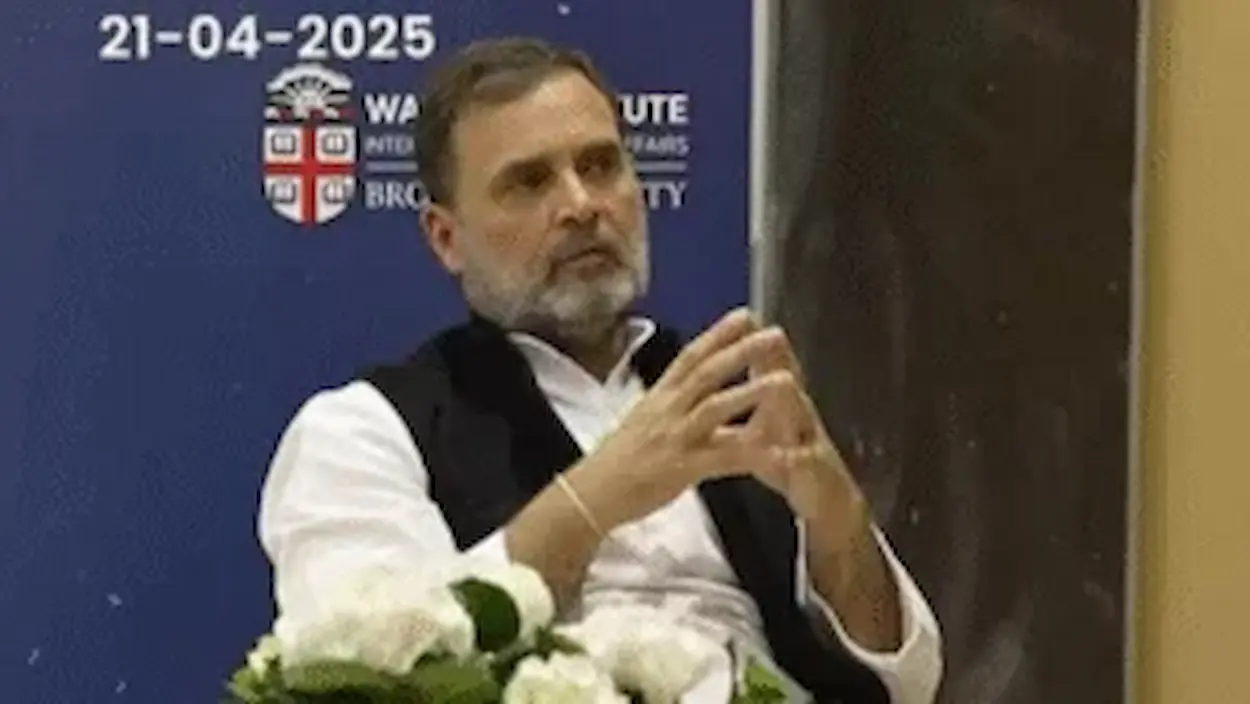
Rahul Gandhi urges India to strengthen manufacturing, reduce reliance on China and embrace a liberalized economy for job creation and social progress
During his recent US visit, Congress leader Rahul Gandhi emphasized the urgent need of country’s economic growth. That India should boost manufacturing for economic growth, rather than relying on imports from China. Speaking at Brown University’s Watson Institute for International and Public Affairs, he outlined a vision for India’s economic future, stressing that a liberalized economy is essential for job creation, social progress, and global competitiveness
“India has the scale and the skill. What we need now is a clear vision—to build, to lead, and to show the world that democracy and manufacturing must go hand-in-hand to power the future,” he stated.
Gandhi stressed that India must move beyond its potential and take decisive action to strengthen its industrial base, create millions of jobs, and reduce dependency on imports.
The Role of Economic Liberalization
A key aspect of Gandhi’s speech was his advocacy for a liberalized economic system. He argued that economic liberalization is not just about growth, but also about social progress.
Manufacturing for Economic Growth
“India is not going to be able to do that without a liberalized economic system. Anybody who talks about social progress and weakening caste structures also has to accept that you need money to do that,” he explained.
According to Gandhi, a strong manufacturing sector would provide economic stability, empower marginalized communities, and reduce income inequality. He emphasized that India must embrace free-market policies to attract foreign investment, boost domestic production, and create high-paying jobs.
India-US Partnership in Manufacturing for economic growth
Gandhi also highlighted the potential of a strategic partnership between India and the US in manufacturing and technology development. He suggested that India and the US should collaborate to build a production ecosystem that thrives in a democratic environment.
“A partnership between India and the US on manufacturing and developing a strategy in a democratic environment is something that could be very powerful,” he noted.
This partnership, he argued, could help India access advanced technologies, improve supply chain efficiency, and strengthen trade relations with the US.
Challenges & Roadblocks
Despite his optimism, Gandhi acknowledged that India faces several challenges in achieving manufacturing excellence:
- Policy Uncertainty – Frequent changes in industrial policies create instability for businesses.
- Infrastructure Gaps – Poor transportation networks and energy shortages hinder production.
- Skilled Workforce Shortage – India needs better vocational training programs to equip workers with modern manufacturing skills.
- Global Trade Tensions – The US-China trade war and tariff negotiations impact India’s export potential.
To overcome these hurdles, he urged the Indian government to implement long-term industrial policies, invest in infrastructure, and promote entrepreneurship.
Conclusion: A Call for Action
Rahul Gandhi’s speech serves as a wake-up call for India to prioritize manufacturing as a key driver of economic growth. His vision aligns with the Make in India initiative, but he insists that India must go beyond slogans and take concrete steps to become a global manufacturing leader.
With the right policies, investments, and international collaborations, India can reduce its reliance on imports, create millions of jobs, and establish itself as a dominant force in global trade.
Read about AI 2025 jobs.
Stay informed with the latest news and updates – only on Rapido Updates.